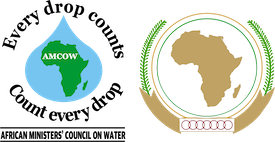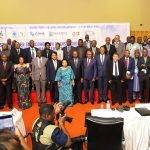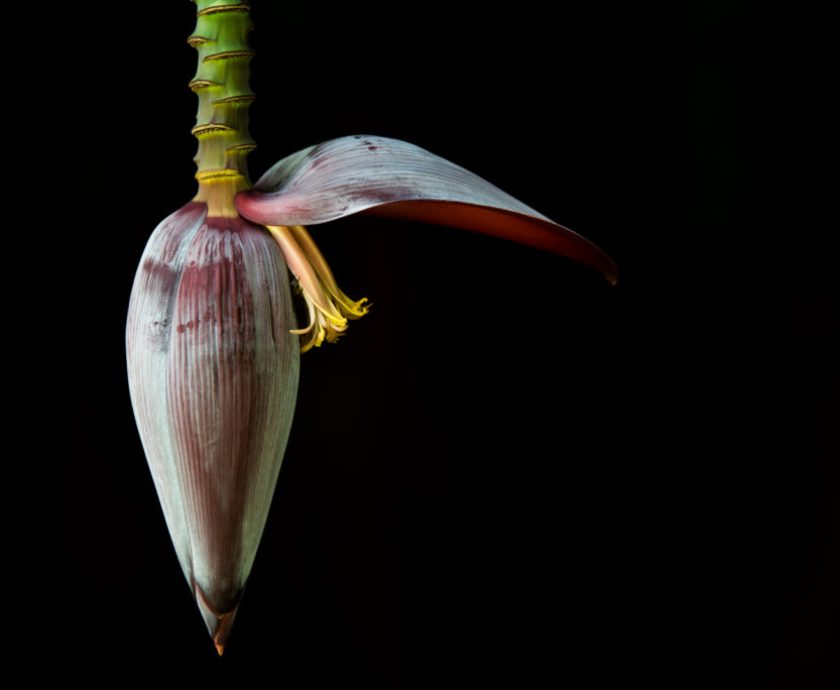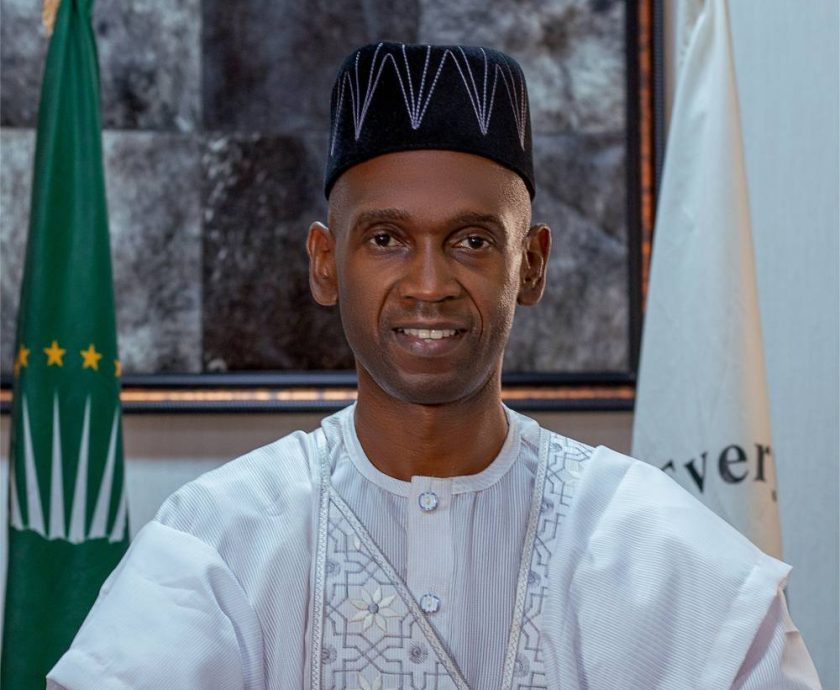Our Chief Guest, The Rt Honourable first deputy Prime Minister of the Republic of Uganda,
Our Host Minister, the Minister for Water Resources and Environment
The Permanent Secretary,
The Chair, African Network of Basin Organisations
Members of the Diplomatic Corps
Our partners
Excellences, ladies and gentlemen,
All protocols observed.
The responsiveness of continental policy initiatives to Member States’ real needs is dependent on a Bottom-Up-Top-Down approach. In essence, Member States’ priorities should constitute the basis for formulating continental initiatives which are in turn domesticated for implementation as national policies. Each of the 5 African Union (AU) regions faces unique challenges on the broad spectrum of water insecurity and inequity. To ensure ownership, it is imperative that all Member States can at least identify with aspects of AMCOW programmes. This is, in turn, influenced by the level of participation in the formulation process.
It is in this regard that efforts are underway to institutionalise strategic operational arrangements with RLBOs and RECs through jointly formulated and executed engagement plans and resources mobilisation activities. This should contribute not only to stronger ties between AMCOW, the RECs and RLBOs, it will also ensure that the development agenda of the RECs informs continental policy initiatives on water.
In addition, vertical integration of Member States, RECs and RLBOs should result in stronger institutional capacities for re-examining water, development, the economy and society. And that is the first of our objectives here today.
Ladies and Gentlemen
The second objective relates to our preparations for post-2025 Africa Water Vision. I need not remind any of you that it is less than three years to reach the final milestone of the Africa Water Vision 2025 (AWV2025). Information from the African Water and Sanitation Sector Monitoring System indicates that we are off-track to achieve key targets of AWV2025. We have initiated the evaluation of the status of the realisation of the vision as we work on the transition to the post-2025 era. Strengthening water security is essential to the realisation of the goals of the African Union Agenda 2063. As such, it is imperative that the post-2025 Africa Water Vision is aligned with AU Agenda 2063.
In this context, my appeal to you that provide leadership in managing our shared water resources here for this meeting is as follows:
- Let us put all available resources to support a comprehensive evaluation of the progress recorded by Member States to date.
The intent is to gather as much information as necessary to form a representative picture of the actual progress towards actualising the Africa Water Vision 2025. It is desired that the 2023 edition of the WASSMO Report will form part of the situation analysis, which will inform the formulation of the post-2025 Africa Water Vision in the context of Africa Agenda 2063.
This meeting is one of those engagements geared towards mobilising partner support to deepen and improve the quality of data submitted to AMCOW. Your mandates and specialist contributions are much needed to meet our goal.
This will ensure that the technical proposals lead to a post-2025 Vision, the pursuit of which will address the real challenges to water security in Africa. More importantly, the action framework should release the potential of Africa’s water resources to drive and sustain Africa’s aspirations for social transformation, economic growth, trade, peace and security.
Furthermore, we need to mobilise support to strengthen Member States’ capacity for data collection and reporting into the WASSMO system.
Ladies and Gentlemen,
Having a well articulated Vision is not an end in itself. We need to ensure that we have the buy-in of our political leadership to realise it. Indeed, we need to do more to raise the profile of water as underlying our aspirations for:
- food security and nutritional safety;
- energy sufficiency, industrialisation and modernisation of our economies;
- human and environmental health and the associated improvements in productivity;
- improvements in opportunities for trade, employment and prosperity for all; and,
- inter-state cooperation, regional integration, peace and security.
Allow me to highlight that the last time water and sanitation were the themes of our Heads of State and Governments discussions was in July 2008 in Sharm el Sheikh, nearly 15 years ago. As we forge on from the ravages of the COVID-19 pandemic and the now-frequent water-related disasters, is it not the right time for us to put it back on the agenda?
AMCOW’s appeal to you is to do all you can to support a request to declare Water and Sanitation as the theme of the African Union for 2026. This will give us the platform to have the post-2025 Africa Water Vision adopted and owned by our leadership.
In the meantime, let us institutionalise the process of engagement being revitalised today. It is my prayer that this agenda-setting gathering of the Executive Leadership of the organisations responsible for water resources management in Africa will be a permanent fixture of the calendar of events of AMCOW through ANBO. Let us leave Kampala with an agreement on which entity will be hosting this gathering next year and on what date. We would like for the outcomes of these gatherings to inform the annual agenda of the AMCOW Governing Council, which would imply that we meet each year before that meeting.
Join me in appreciating the warm hospitality of our hosts and the time and resources they have invested in getting us here. And to the multitude of our partners, we acknowledge your invaluable support.
I thank you.










